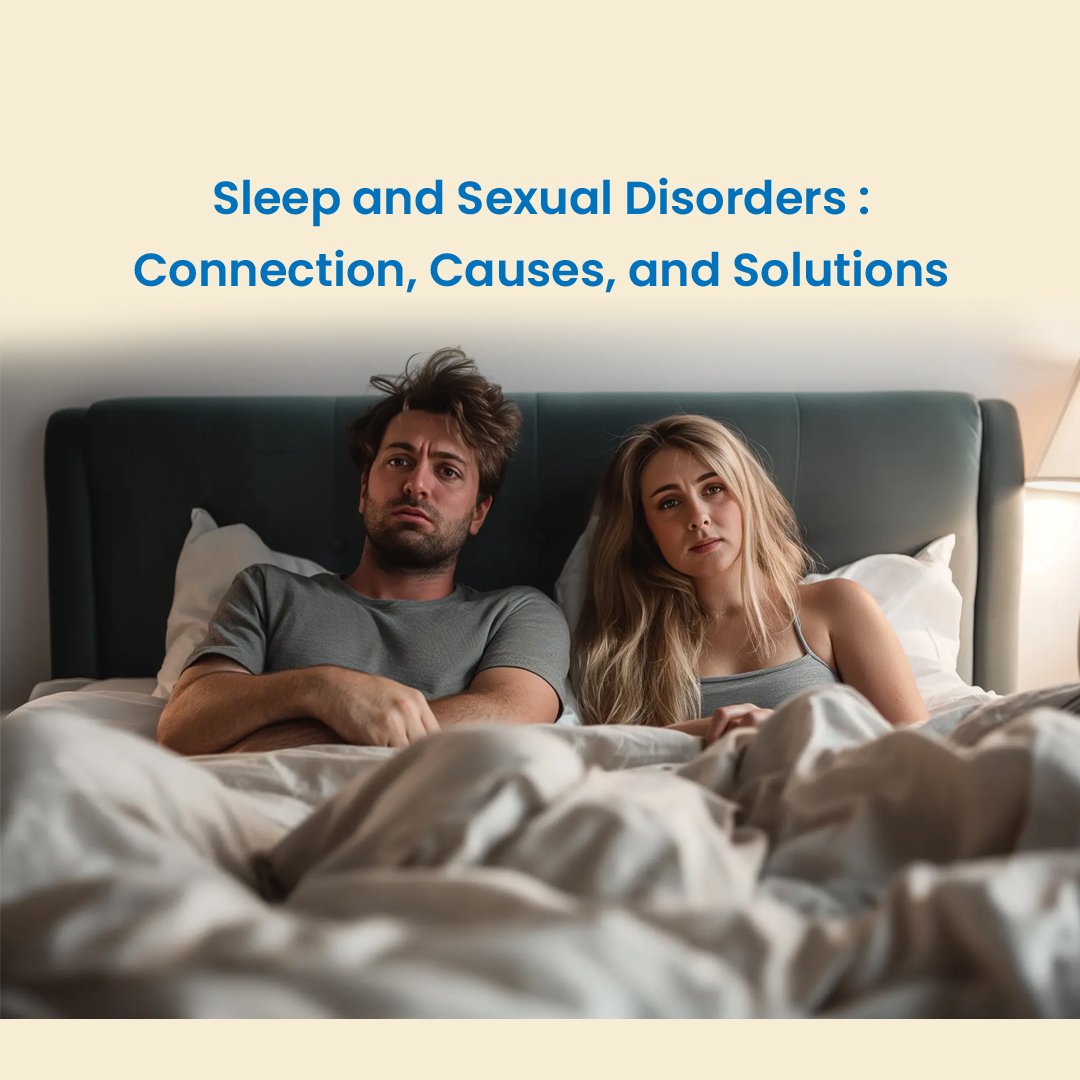
Sleep and Sexual Disorders: Connection, Causes, and Solutions
Sleep and sexual health are two critical components of overall well-being, yet they are often overlooked in daily conversations. Research shows a strong connection between sleep quality and sexual health. Disorders in one area often influence the other, leading to a cycle of diminished health and well-being. This blog explores the intricate link between sleep and sexual disorders, their causes, and how to manage them for a healthier life.
### *The Interplay Between Sleep and Sexual Health*
Sleep is essential for physical and mental restoration, while sexual health is a vital aspect of emotional and relational well-being. When sleep is disrupted, it can impact hormones, energy levels, and mood—all of which are key factors in sexual health. Similarly, sexual dysfunction can lead to stress and anxiety, further affecting sleep patterns.
### *Common Sleep Disorders That Affect Sexual Health*
1. *Obstructive Sleep Apnea (OSA)*
– OSA involves repeated interruptions in breathing during sleep, leading to poor sleep quality.
– It has been linked to *erectile dysfunction (ED)* in men and decreased libido in both men and women.
2. *Insomnia*
– Persistent difficulty falling or staying asleep impacts energy levels and mood.
– Chronic insomnia is associated with reduced sexual arousal and satisfaction.
3. *Restless Legs Syndrome (RLS)*
– RLS causes uncomfortable sensations in the legs, leading to disrupted sleep.
– Studies show RLS may contribute to sexual dysfunction, particularly in women.
4. *Narcolepsy*
– Excessive daytime sleepiness and sudden sleep attacks affect daily functioning.
– Narcolepsy can decrease sexual desire and increase the risk of performance anxiety.
### *Sexual Disorders Linked to Sleep Problems*
1. *Erectile Dysfunction (ED)*
– Poor sleep affects testosterone levels, a key hormone for male sexual function, contributing to ED.
2. *Decreased Libido*
– Sleep deprivation reduces testosterone production and energy, leading to a decline in libido for both genders.
3. *Premature Ejaculation (PE)*
– Sleep disturbances heighten stress and anxiety, often exacerbating issues like PE.
4. *Arousal Disorders*
– Poor-quality sleep interferes with hormonal regulation, affecting arousal and lubrication in women.
5. *Sexual Performance Anxiety*
– Stress from poor sleep can lead to anxiety about sexual performance, creating a negative feedback loop.
### *Causes of Sleep and Sexual Disorders*
1. *Hormonal Imbalances*
– Sleep regulates hormones like *testosterone* and *cortisol*, which influence sexual health.
2. *Chronic Stress*
– Stress impacts both sleep and sexual function, creating a vicious cycle of dysfunction.
3. *Medical Conditions*
– Conditions like *diabetes, **heart disease, and **obesity* affect sleep quality and sexual performance.
4. *Lifestyle Factors*
– Poor sleep hygiene, excessive alcohol consumption, and smoking contribute to both sleep and sexual issues.
5. *Medications*
– Certain medications for sleep disorders or other health issues can have side effects, including sexual dysfunction.
### *How to Address Sleep and Sexual Disorders*
1. *Seek Medical Advice*
– Consult a specialist for conditions like *sleep apnea* or *chronic insomnia*.
– For sexual dysfunction, speak with a urologist, gynecologist, or sexual health expert.
2. *Adopt Healthy Sleep Habits*
– Maintain a consistent sleep schedule.
– Avoid caffeine and electronic devices before bed.
– Create a comfortable sleep environment.
3. *Therapy and Counseling*
– *Cognitive Behavioral Therapy (CBT)* for insomnia or sexual dysfunction can address underlying psychological factors.
4. *Lifestyle Changes*
– Incorporate regular exercise to improve circulation and hormonal balance.
– Eat a balanced diet rich in nutrients that support hormonal health.
5. *Medication and Treatments*
– Hormone therapy may be beneficial for testosterone deficiency.
– Continuous Positive Airway Pressure (CPAP) devices can manage *sleep apnea*, improving sleep and sexual health.
6. *Stress Management Techniques*
– Practice mindfulness, yoga, or meditation to reduce stress levels.
### *The Importance of Holistic Health*
A healthy lifestyle forms the cornerstone of addressing both sleep and sexual disorders. By prioritizing good sleep hygiene, staying physically active, and managing stress effectively, individuals can enhance their overall quality of life.
### *Conclusion*
Sleep and sexual disorders often go hand in hand, impacting physical, emotional, and relational well-being. Recognizing the signs early and seeking appropriate intervention can break the cycle of dysfunction. Whether through medical treatments, lifestyle changes, or therapy, taking steps to improve sleep and sexual health leads to a more fulfilling life.

